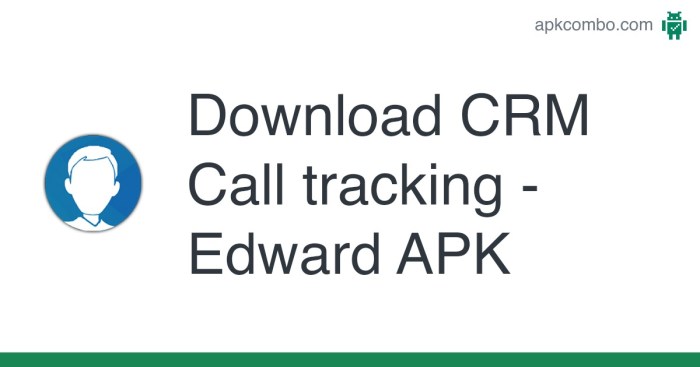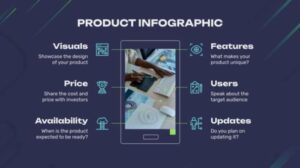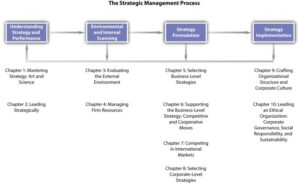CRM for call tracking sets the stage for a transformative approach to managing communications and customer interactions. By integrating call tracking within Customer Relationship Management systems, businesses can gain invaluable insights into customer behavior and preferences, ultimately improving their overall strategy.
This powerful combination not only streamlines processes but also enhances decision-making capabilities, enabling companies to innovate and adapt more effectively in a competitive landscape.
Introduction to CRM for Call Tracking
Customer Relationship Management (CRM) systems play a pivotal role in managing a company’s interactions and relationships with customers. One of the key functionalities of CRM systems is call tracking, which allows businesses to monitor and analyze customer calls. By integrating call tracking within a CRM framework, organizations can enhance their customer service, streamline communication processes, and gain valuable insights into customer behavior.Integrating call tracking into a CRM solution provides numerous benefits, such as improved customer experience, increased sales, and effective marketing strategies.
Key features of effective CRM call tracking solutions include call recording, call analytics, and detailed reporting. These features enable businesses to understand customer needs better and make informed decisions based on data-driven insights.
Importance of Call Tracking in Business Innovation
Call tracking has emerged as a crucial element in driving business innovation. By understanding customer interactions through call data, organizations can identify trends, enhance service delivery, and innovate their offerings. Innovative companies like HubSpot and Salesforce have effectively utilized call tracking to refine their customer engagement strategies.The reliance on data-driven decision-making facilitated by call tracking cannot be overstated. Businesses can harness this data to pivot their strategies, improving overall performance and fostering a culture of continuous innovation.
CRM for International Business Call Tracking
International call tracking presents unique challenges, including varying regulations, language barriers, and time zone differences. To optimize CRM systems for global operations, companies should implement strategies like localizing communication, ensuring compliance with international laws, and utilizing cloud-based CRM solutions for accessibility.Different countries may adopt varied practices for call tracking, which can affect data collection and analysis. Understanding these differences is vital for successful global operations and maintaining consistent customer service standards.
Conducting Business Interviews with CRM Insights
CRM data significantly enhances interview processes by providing insights into candidate interactions and customer service skills. During candidate evaluations, leveraging call tracking data can help assess a candidate’s communication skills and response to customer inquiries.Using call tracking in customer service role assessments allows interviewers to evaluate real-life examples of how candidates handle customer interactions, thus ensuring a better fit for the organization.
Job Search Techniques Utilizing CRM for Call Tracking
Job seekers can benefit greatly from analyzing their call interactions through CRM systems. By tracking networking calls made during a job search, candidates can reflect on their communication techniques and identify areas for improvement.Following up on calls made during job applications can be streamlined with CRM tools, ensuring candidates stay organized and maintain communication with potential employers.
CRM and Business Management Best Practices
Implementing best practices for CRM in business management is essential for success. This includes actively training staff on CRM functionalities and integrating call tracking into daily management processes. A step-by-step guide for integrating call tracking into management routines involves setting clear objectives, ensuring team-wide adoption, and regularly analyzing call data for improvement opportunities. Call tracking also plays a vital role in performance assessments, providing measurable metrics for staff evaluation.
Marketing Direct with CRM Call Tracking
Optimizing direct marketing campaigns through call tracking can significantly enhance customer engagement. By analyzing customer responses to marketing efforts, businesses can refine their strategies and maximize outreach effectiveness.To measure ROI through call tracking metrics, companies should focus on key performance indicators such as conversion rates and customer acquisition costs, linking these directly to specific marketing campaigns.
Enhancing Business Networking via CRM Call Tracking
Call tracking is essential for expanding professional networks. By managing networking relationships through CRM data, businesses can maintain valuable connections and identify opportunities for collaboration.Successful networking often involves strategic follow-ups with contacts based on insights gathered from call interactions, illustrating the importance of call tracking in fostering professional relationships.
CRM and Business Outsourcing Strategies
Streamlining outsourced customer support operations can be achieved through effective call tracking. Integrating call tracking into outsourced services ensures that quality remains consistent across different teams.When comparing in-house versus outsourced call tracking, organizations should evaluate the effectiveness of each approach, taking into account factors such as response times and customer satisfaction rates.
Effective Business Presentations with CRM Data
Presenting call tracking data in business meetings requires a well-structured approach. Visual representations of call metrics, such as graphs and charts, can enhance understanding and engagement during presentations.Key statistics to include in presentations should highlight the impact of call tracking on customer satisfaction, sales performance, and overall business growth, providing a compelling case for continued investment in CRM systems.
Improving Business Productivity through CRM Call Tracking
Enhancing team productivity using call tracking insights involves identifying patterns in communication and addressing inefficiencies. Time management strategies informed by CRM data can lead to more effective use of resources.By analyzing calls, businesses can pinpoint low-performing areas and implement targeted training to improve overall productivity and results.
Call Tracking in the Restaurant Industry
In the restaurant industry, call tracking can significantly improve customer service by enabling better management of reservations and customer feedback. Restaurants that implement CRM call tracking solutions often see an increase in customer satisfaction and repeat business.Case studies of successful restaurants utilizing CRM call tracking demonstrate its impact on operational efficiency and customer relationship management.
Crafting Resumes and Cover Letters with CRM Insights
Highlighting call tracking experience in resumes can set candidates apart. Tailoring cover letters using CRM metrics showcases an understanding of the importance of data in improving customer interactions.Effective communication skills derived from call tracking can be emphasized through specific examples, demonstrating a candidate’s ability to engage with clients and manage relationships successfully.
CRM Strategies for Business Retail Operations
In retail environments, call tracking is vital for managing customer interactions and improving the shopping experience. CRM systems can help track sales calls, leading to better customer service and increased sales.Insights gained from call analysis in retail can inform strategies for enhancing customer engagement, ensuring a seamless shopping experience.
Risk Management through CRM Call Tracking
Identifying potential risks associated with call handling is essential for effective customer interactions. CRM systems can help mitigate these risks by providing data-driven insights and monitoring compliance with industry regulations.Establishing risk management frameworks utilizing call tracking data ensures that organizations can proactively address issues before they affect customer satisfaction.
Maximizing Business Sales with CRM Insights
Increasing sales through call tracking data involves analyzing customer interactions to identify trends and preferences. CRM systems can help businesses tailor their sales approaches based on these insights.Training sales teams using insights gained from call logs can enhance performance and support the achievement of sales targets.
Effective Sales Management using CRM Call Tracking
Managing sales teams effectively with call tracking requires adherence to best practices. Developing techniques for measuring sales performance through call metrics can lead to more informed decision-making.Setting sales goals based on CRM data creates accountability and focuses efforts on achieving measurable outcomes.
Training Sales Teams with CRM Call Tracking Insights
Creating a training program based on CRM call tracking data allows businesses to standardize their sales training efforts. Real-time feedback from call interactions can enhance learning and skill development for sales staff.Successful sales training programs often incorporate metrics and insights from call data, ensuring that teams are well-prepared to engage with customers.
Ensuring Business Security in Call Tracking
Protecting call tracking data is essential for maintaining customer trust. Implementing security measures and ensuring compliance with data regulations safeguards sensitive information.Highlighting the importance of cybersecurity in CRM systems reinforces the need for businesses to take proactive steps in data protection.
CRM Benefits for Small Businesses
Small businesses can leverage call tracking to drive growth by understanding customer needs and improving service delivery. Success stories of small enterprises effectively using CRM illustrate its transformative potential.Cost-effective strategies for implementing CRM call tracking can provide small businesses with a competitive edge, enhancing their ability to connect with customers.
Supporting Solo Professionals with CRM Solutions

Solo professionals can benefit from CRM tools to manage client communications efficiently. Call tracking enables freelancers and consultants to maintain organized records of client interactions.Building a personal brand using insights from call tracking helps solo professionals differentiate themselves in a competitive market.
Strategic Planning with CRM Call Tracking
Incorporating call tracking data into strategic business decisions can enhance organizational effectiveness. Developing a framework for utilizing call metrics in planning ensures that businesses remain agile and responsive to market changes.Examples of companies successfully using call tracking for planning illustrate its importance in shaping future strategies.
Team Building with CRM Insights
Call tracking can significantly enhance team collaboration by providing insights into communication dynamics. Strategies for using call data to improve team dynamics can foster a more cohesive work environment.Recognizing and rewarding team performance based on call tracking metrics can motivate staff and promote a culture of excellence.
Venture Capital and CRM Call Tracking
The significance of CRM data in securing venture capital cannot be overstated. Presenting call tracking metrics to investors showcases a company’s operational efficiency and market understanding.Identifying key performance indicators that venture capitalists look for in CRM reports ensures that businesses can effectively demonstrate their growth potential.
Improving Workplace Communication through CRM Call Tracking
Fostering open communication using call tracking tools can lead to a more collaborative workplace. CRM systems streamline internal communication processes, enhancing overall productivity.Successful communication strategies informed by call tracking help to align team goals and improve organizational culture.
Ensuring Workplace Safety through Effective Call Tracking
Enhancing safety protocols in workplaces can be achieved through call tracking. Documenting safety-related calls within CRM systems provides valuable insights for improving safety measures.Examples of organizations benefiting from improved safety tracking illustrate the critical role of call tracking in maintaining a safe work environment.
Final Conclusion
In conclusion, CRM for call tracking is an essential tool for modern businesses striving to improve their customer engagement and operational efficiency. By harnessing the data collected through call tracking, companies can make informed decisions that drive growth and success in today’s fast-paced market.
Q&A
What is CRM for call tracking?
It is a system that integrates call tracking features into a CRM platform to improve customer interactions and business insights.
How can small businesses benefit from CRM call tracking?
Small businesses can leverage these systems to understand customer behavior better and optimize their sales and marketing strategies.
What are the key features of effective call tracking?
Key features include call recording, analytics, integration capabilities, and reporting tools that help businesses analyze and optimize their communication strategies.
Is call tracking useful for international businesses?
Yes, it helps manage and analyze international calls, providing insights into different markets and customer preferences.
How does call tracking improve marketing efforts?
By analyzing customer responses to marketing campaigns, businesses can refine their strategies and measure ROI more effectively.




